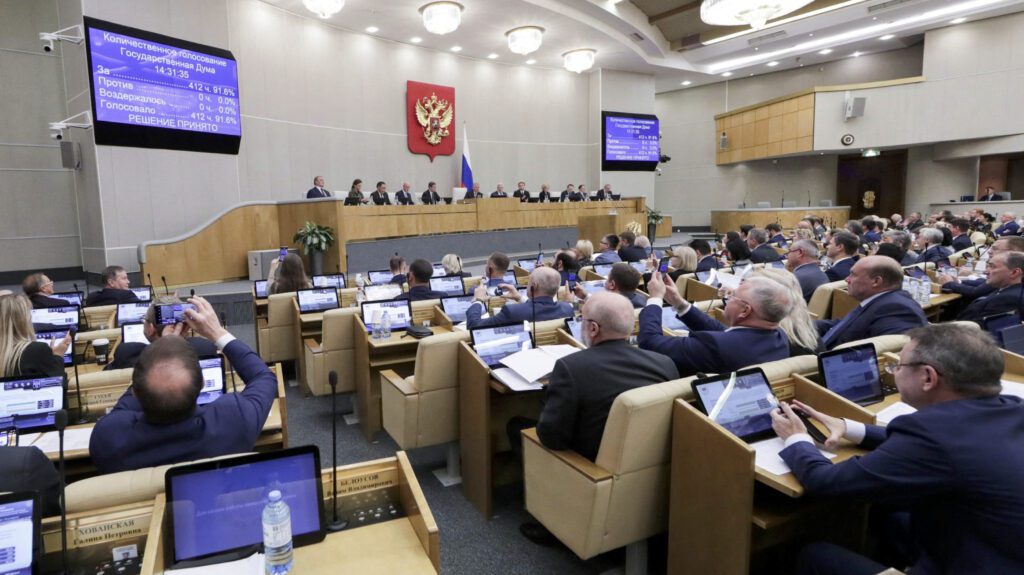Russia’s Shift on Comprehensive Nuclear Test Ban Treaty: Implications and Analysis
Introduction: Russia’s Nuclear Policy
In a swift move, Russia’s State Duma, the lower house of parliament, has passed a bill revoking its ratification of the Comprehensive Nuclear Test Ban Treaty (CTBT). This decision comes amid heightened tensions with the West and aligns with President Vladimir Putin’s desire to mirror the position of the United States, which signed but never ratified the treaty in 1996.
Unanimous Decision in the State Duma
The bill, which passed both the second and third readings, received unanimous support with 415 votes in favor and none against. Putin’s call to make this change reflects Russia’s stance on global nuclear policies and, notably, its response to the actions of the United States.
Putin’s Justification
President Putin, in urging the Duma to take this step, emphasized the need to protect Russia’s interests, stating, “We understand our responsibility to our citizens. What is happening in the world today is the exclusive fault of the United States.” This declaration underscores the gravity with which Russia perceives the evolving global dynamics.
Nuclear Posturing Since the Ukraine Invasion
Putin’s reminders of Russia’s nuclear capabilities have been a recurring theme since the invasion of Ukraine last year. State TV showcased rare footage of him in Beijing, accompanied by naval officers carrying the so-called nuclear briefcase, a symbol of Russia’s readiness for a nuclear strike.
Concerns and Speculations
While Russia asserts it will not resume atomic testing unless the United States does, arms control experts express concerns that such a move might escalate tensions, especially amidst the ongoing conflict in Ukraine. The fear is that a nuclear test by either Russia or the United States could trigger similar actions from other nuclear powers, leading to a new global arms race.
Russia’s Shifting Stance on CTBT
Russia originally ratified the CTBT in 2000, but this recent bill indicates a revocation of that step. Despite this, Russia has stated its intention to remain a signatory to the treaty and continue supplying data to the global monitoring system designed to detect any nuclear tests worldwide.
Keeping Intentions Ambiguous
Parliament speaker Vyacheslav Volodin, during the introduction of the bill, hinted at the possibility of Moscow withdrawing altogether from the CTBT. He emphasized the importance of keeping Washington guessing about Russia’s intentions, stating, “What we will do next – whether we remain a party to the treaty or not, we will not tell them. We must think about global security, the safety of our citizens and act in their interests.”

Path to Law: Upper House and Putin’s Signature
With the passage in the State Duma, the law now proceeds to the upper house for further consideration. Once approved, it will reach President Putin for his signature, solidifying Russia’s shift in its nuclear testing stance.
Putin’s Ambiguous Position
President Putin, in earlier statements this month, acknowledged discussions on whether Russia should resume nuclear testing but refrained from expressing a definitive stance. This ambiguity adds an element of unpredictability to Russia’s nuclear policies.
Global Nuclear Landscape
Russia’s move to revoke the CTBT follows its suspension of New START earlier this year, the last remaining bilateral nuclear treaty with the United States. Experts suggest that both actions may be part of Putin’s strategy to create uncertainty among states supporting Ukraine in its defense against Russia’s invasion.
International Response
Melissa Parke, executive director of the International Campaign to Abolish Nuclear Weapons, criticized Russia’s action as irresponsible. She highlighted the importance of treaties like the CTBT in preventing the resumption of nuclear testing, citing potential health hazards and widespread radioactive contamination.
Historical Context
It’s noteworthy that post-Soviet Russia has never conducted a nuclear test. The Soviet Union‘s last test was in 1990, followed by the United States in 1992. This historical context adds complexity to Russia’s decision to shift its stance on the CTBT.
Satellite Images and Arms Race Concerns
Recent satellite images published by CNN reveal that Russia, the United States, and China have all constructed new facilities at their nuclear test sites in recent years. This development fuels concerns about the possibility of a new global arms race.
Expert Analysis
Experts at the Stockholm International Peace Research Institute express concern that Russia’s move weakens international stability and increases the likelihood of a new nuclear arms race. They note the difficulty for the United States to criticize Russia’s withdrawal from the CTBT, given its own failure to ratify the treaty in the 27 years since signing.
Conclusion
In conclusion, Russia’s swift legislative action to revoke the CTBT underscores the evolving dynamics of global nuclear policies. The implications of this decision reach beyond the immediate geopolitical landscape, raising concerns about the potential for increased nuclear tensions and the destabilization of international security.